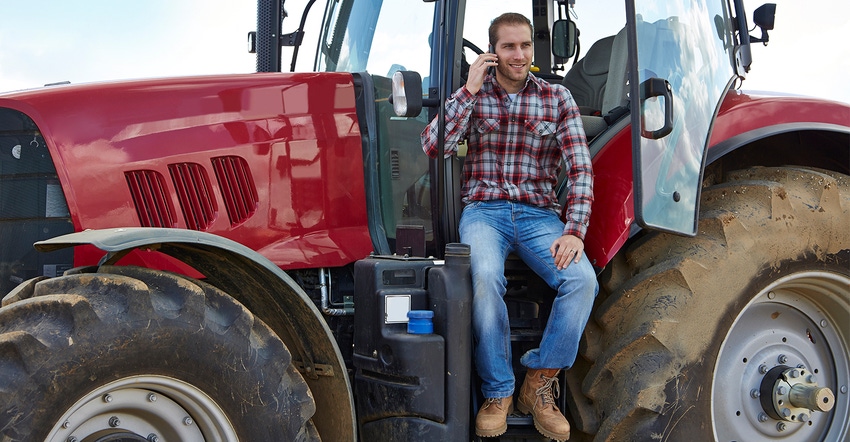December 14, 2018

By Tim Halbach
Farmers are known to be a resilient group, having dealt with droughts, floods, tariffs, fluctuating markets and everything else over the years. With that mindset, positives can still be found in this tough farm economy.
For example — and this may sound crazy — it is a great time to start dairy farming or to buy a second farm. Today, for the same price, a farmer could buy two or three times as many cows as he or she could have three years ago. Feed prices and used machinery prices are also down. With many farmers leaving the business, there are opportunities to lease or buy nice facilities at a reasonable price.
Obviously, if the farm did not cash-flow very well for the farmer who quit, you’ll have to look closely at whether it would cash-flow for you. While most prices have gone down, cropland seems to be an asset that has held steady over the past three years.
Likewise, it can be a good time to expand your herd for those same reasons. In addition, building contractors may be less busy, as there is less expansion presently taking place. Although interest rates have been slowly rising from all-time lows over the past two years, they are still more than reasonable.
Transferring assets
If you have a sustainable farm and children to transfer the farm to, it is a good time to do some transferring to the next generation. Many transfers from one generation to the next involve some sort of gifting component, and with prices where they are, it allows parents to transfer more assets to their children without creating a tax issue.
Similarly, if you have a large net worth whereby you are close to or exceeding the federal estate tax exclusion, now is a great time to look seriously at transferring some of that estate with gifting, sales or intentionally defective grantor trusts. As part of the new tax law signed late in 2017, the federal estate tax exclusion is now $11,018,000 per person. Generally speaking, this means if you die in 2018 and your estate is worth less than $11,018,000, your estate will not owe any federal estate taxes. If your estate is worth more than that amount at death, your estate will owe federal estate taxes equal to the amount over $11,018,000 multiplied by 40%. It should be noted that in 2026, the federal estate tax exclusion is scheduled to go back down to about $6 million per person.
Politics, especially more recently, have also played a large role in the amount of the estate tax exclusion. Republicans tend to favor no estate tax exclusion, whereas recent Democratic presidential hopefuls have campaigned on the premise of having an estate tax exclusion of $3.5 million per person. Therefore, even though the estate tax exclusion is high now, there is a real possibility that it could go down considerably.
In other words, if three years ago your dairy herd was worth $1 million, today that same dairy herd might be worth less than $400,000. As such, there is opportunity to transfer more assets to the next generation at lower values, thus saving estate tax.
Finally, low prices tend to place a greater emphasis om looking closely at one’s farming operation. Are there places where costs can still be cut? Are there bank loans that can be extended to a longer term, thus creating a smaller payment now? Are there other ways to create income? In my experience, successful farms tend to have owners who are very hands-on, and often have spouses who work off the farm or are very hands-on on the farm themselves.
A ‘fresh start’
If you have tried everything and still want to keep farming, bankruptcy is certainly something worth considering, as it is designed to give farmers a “fresh start.” If you have tried everything and have decided to get out of farming, make sure you talk to your tax accountant. For example, tax savings can certainly be found by spreading out sales over more than one year, if possible.
Besides resiliency, optimism is another trait most successful farmers have, and it is a trait and an attitude needed more now than at any other time in recent memory.
Halbach is a partner in the agricultural law firm of Twohig, Rietbrock, Schneider and Halbach. Call him at 920-849-4999.
You May Also Like




